Regional party wins most seats in key Kashmir vote
- Published
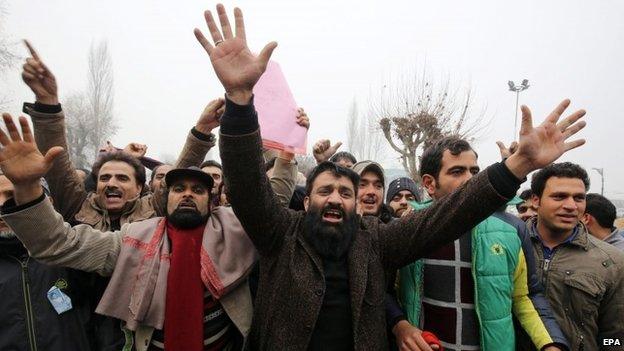
The PDP's success has been attributed to widespread public discontent over the governing National Conference party's handling of devastating September floods that killed scores of people
The regional People's Democratic Party (PDP) has won most seats in elections in Indian-administered Kashmir, but not enough to form a government.
Results show, external the PDP won 28 seats, three more than Prime Minister Narendra Modi's BJP party.
Analysts say a coalition government is now likely because no party won the 44 seats needed to form an administration in the 87-member state assembly.
The disputed Kashmir region is claimed by both India and Pakistan.
It has been a flashpoint for more than 60 years and the rivals have fought two wars over the region.
Thousands of soldiers were deployed in and around polling stations during the five-phase voting which began on 25 November and ended on 20 December.
Some 65% of the more than a million eligible voters cast their ballots, authorities said.
Political watershed
The result was hailed by PDP president Mehbooba Mufti who said that her party "will deliberate on what would be the best combination for accommodating people's aspirations".
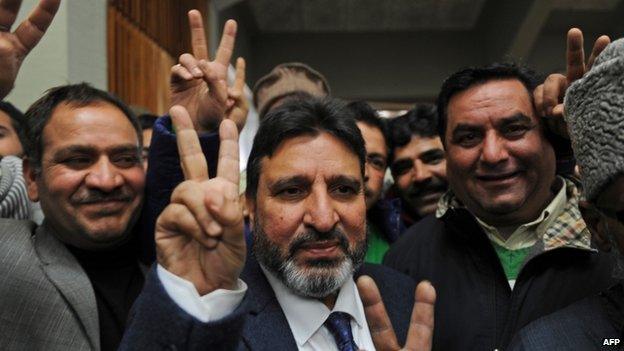
The PDP dominated the vote in the Muslim-majority Kashmir Valley, where the BJP failed to win a seat
It is also is a resounding success for the Hindu nationalist BJP.
For the first time it has emerged as a major political player in the disputed Kashmir region, even though its support base is confined to the southern Hindu-majority part of the state of Jammu and Kashmir.
The BJP more than doubled the number of seats it previously held, marking what correspondents say is a political watershed for the region.
The National Conference, the dominant political party in Indian-administered Kashmir for decades, lost power in the vote, winning only 15 seats.
Outgoing Chief Minister Omar Abdullah - whose family has been in office in India-administered Kashmir since independence in 1947- rejected arguments from Delhi that the high voter turnout signalled growing faith in Indian democracy.
The BBC's Faisal Mohammed Ali in Srinagar says the results show that people in the Muslim-majority north do not want any dilution of Jammu and Kashmir's special constitutional status - by which it has more autonomy and by which non-Kashmiris are prohibited from owning land.
Correspondents say that it will only become clear over the coming days as to who will form the next government in Kashmir.
The PDP was previously part of a coalition that governed Kashmir between 2002 and 2008
Ms Mufti said her party "will not try to cobble up a government by manipulation. It will take time to build a formation which can fulfil the aspirations of people of Jammu and Kashmir".

At the scene: Faisal Mohammad Ali, BBC Hindi, Srinagar
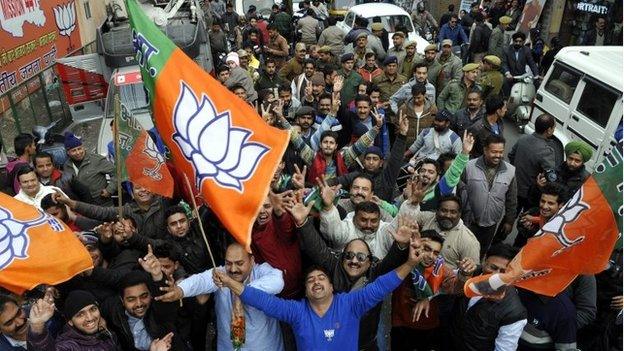
The BJP was able to celebrate a major election breakthrough in Indian-administered Kashmir
The generally-deserted main convention centre in Srinagar is agog with politicians, media and security personnel as votes are counted inside.
The temperature has dipped to an icy cold 2C, but this has not deterred supporters of political parties from gathering outside the place to get the first news about the results.
The first candidate to win a seat in the state belonged to the BJP. His supporters started bursting firecrackers, and said the BJP was confident of forming the new government.
But as vote counting continued, the regional PDP inched ahead, and it was the turn of their supporters to begin shouting jubilant slogans.

The politics of Kashmir has long been dominated by the two regional parties, the National Conference and the PDP.
The BJP has never been a serious contender in the Kashmir valley, given its hardline views on the state's tenuous relationship with India.
But in the run up to the assembly elections Prime Minister Modi - who won national elections in May - campaigned extensively in Kashmir, promising to bring jobs and development to the region.
Meanwhile, in the eastern state of Jharkhand, where elections were held at the same time, the BJP is headed for a clear majority in the 81-seat assembly .
- Published25 November 2014
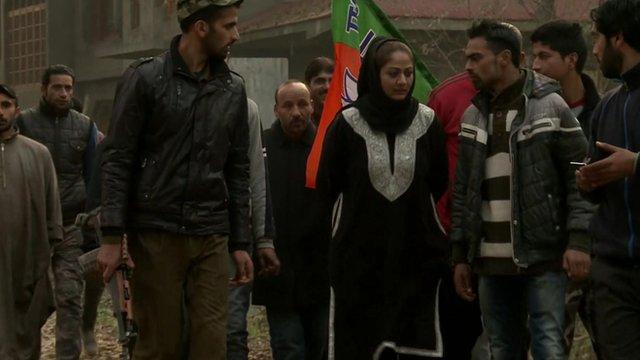
- Published4 April 2016
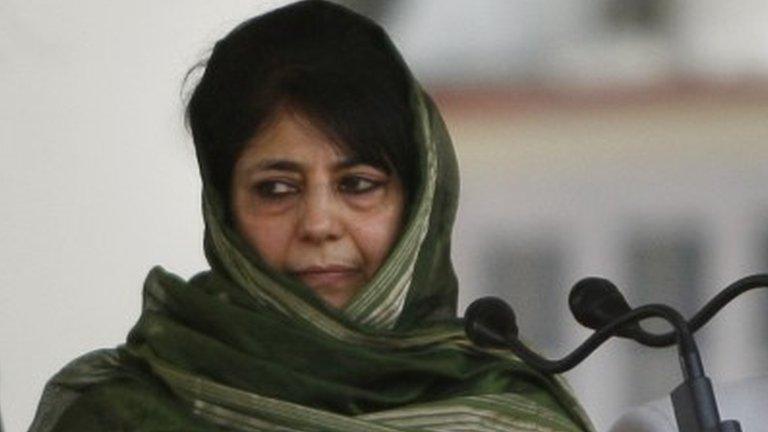
- Published24 November 2014
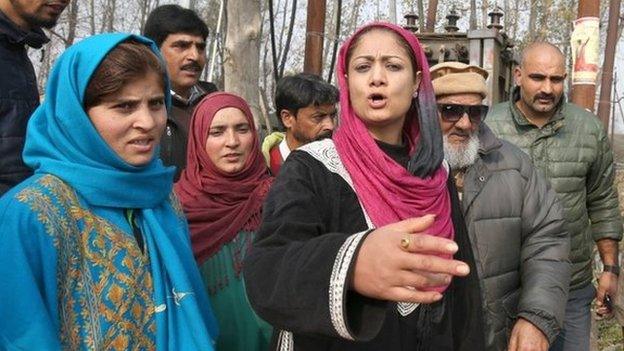
- Published10 March
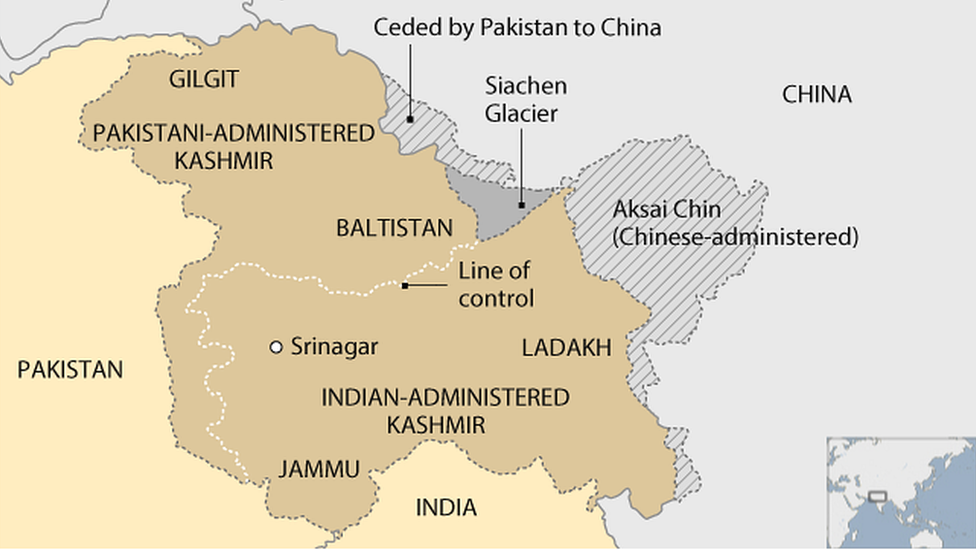
- Published2 April 2014
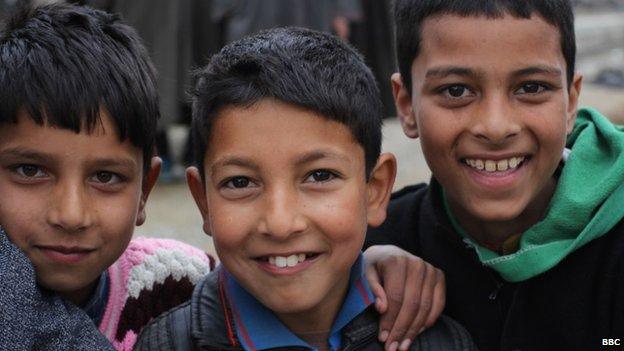
- Published6 January 2014